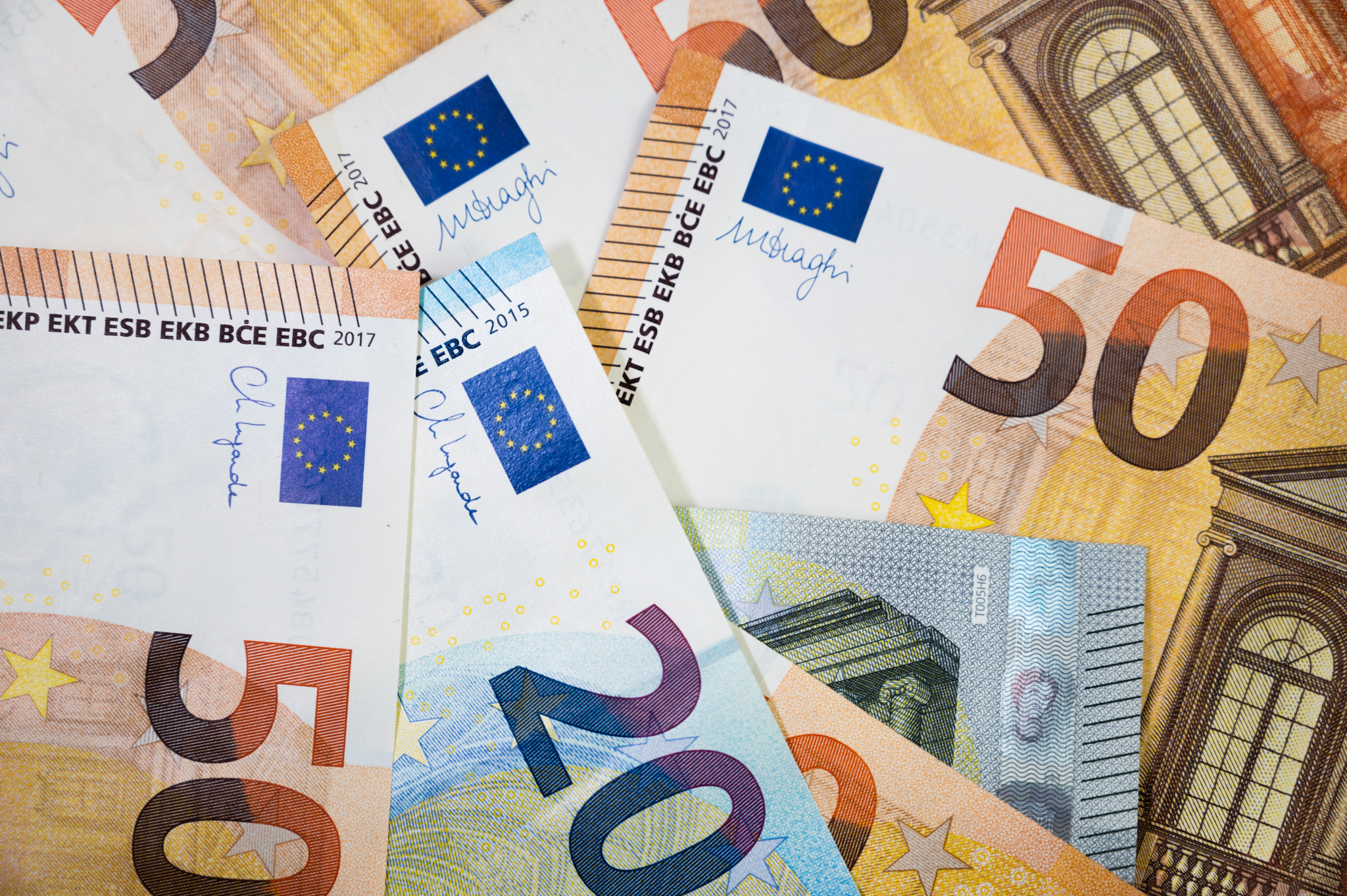All About Cash Flow
How To Improve The Cash Flow Of Your Real Estate Investments

Thinking about investing in real estate to provide for your long-term retirement? That's a smart decision, but there's one crucial metric you should keep in mind: cash flow. In this article, we'll take a closer look at cash flow, how you calculate it, and why it matters so much for real estate investing.
We'll also address the question of whether real estate investing only makes sense when cash flow is positive, and how you can improve cash flow, both before and after buying a property.
- Definition
- Negative Cash Flow
- Improving Cash Flow
- Cash Flow After Taxes
- Summary
- FAQ
What is Cash Flow and How Is It Calculated?
Before we dive into the details, let's first clarify the term "Cash Flow." Cash flow is the relationship between the income and expenses of a property. If there is money left over after deducting all costs and expenditures, it is referred to as a positive cash flow. The calculation of cash flow is as follows:
Cash Flow = Income - Expenses
Income includes rental income, utility bill reimbursements, or any other revenue generated from the property. Expenses encompass loan repayments, interest, ongoing operational costs, maintenance reserves, insurance, and management fees.
Are Real Estate Investments Only Worth It When Cash Flow Is Positive?
The answer to this question is complex. A positive cash flow is undeniably an indicator of a profitable real estate investment. It indicates that your income can cover ongoing expenses and debts, leaving surplus funds. This is especially important for ensuring long-term financial stability and profitability.
However, it's crucial to understand that achieving a positive cash flow from the outset is not always easy, especially in sought-after locations or during periods of high interest rates. Properties in prime locations may come at a higher cost and may require larger loans, which can initially impact cash flow negatively. However, this doesn't mean that such real estate investments should be avoided altogether.
Many experienced investors, like Janina, have successfully acquired properties that initially had a negative cash flow. This is because they have developed strategies to improve cash flow over time.
Negative Cash Flow: A Red Flag in Real Estate Investment?
A negative cash flow should not necessarily be viewed as a red flag. It is more of a snapshot and can be temporary. It is essential to understand why cash flow is negative and how to steer it in a positive direction in the long run.
Now, let's explore various ways to improve cash flow, both before and after purchasing a property.
Ways to Improve Cash Flow Before and After Purchase
1. Negotiating Purchase Price: Even before buying a property, you can try to negotiate the purchase price. A lower purchase price can reduce monthly loan repayments and enhance cash flow.
2. Rent Adjustment: If you already own a property, regularly assess whether you can increase the rent. Be mindful of legal regulations and rent cap limits in your area. Adjusting rents can boost cash flow.
3. Furnished Rentals: Renting out your property fully furnished to short-term tenants, such as tourists or business travelers, can generate higher rental income and improve cash flow. Ensure compliance with local regulations.
4. Installing a Fitted Kitchen (EBK): Adding a fitted kitchen can increase the value of your property and raise rental income. This can have a long-term positive impact on cash flow.
Conclusion: How Important Is Cash Flow, Then?
Cash flow is undoubtedly a critical factor in real estate investments. A positive cash flow provides financial security and contributes to the profitability of your investment. However, it may not always be easy to achieve a positive cash flow right from the start, especially in high-demand locations or during periods of high interest rates.
Experienced investors like Janina have demonstrated that it is possible to improve cash flow over time by implementing various strategies. These strategies may include optimizing financing, adjusting rents, engaging in furnished rentals, and other measures.
Ultimately, the significance of cash flow depends on your goals with your real estate investments. If you seek long-term stability and profitability, a positive cash flow is highly important. However, if you are willing to invest for the long term and implement strategies to enhance cash flow, even properties with initially negative cash flow can become profitable over time.
In any case, it is essential to conduct thorough research, assess risks, and plan potential improvement strategies to optimize cash flow in your real estate investments.
Are Real Estate Investments Only Worth It If the Cash Flow Is Positive?
The answer to this question is not so simple. A positive cash flow is certainly a strong indicator of a profitable real estate investment. It shows that your rental income covers your ongoing expenses and loan payments, while still leaving a surplus each month. This is especially important for ensuring financial stability and long-term profitability.
However, it’s important to understand that achieving positive cash flow isn’t always easy in the beginning — especially in high-demand locations or when interest rates are high. Properties in prime areas tend to be more expensive and may require larger loans, which can initially reduce or even create negative cash flow.
But that doesn’t mean you should immediately rule out the deal. Many experienced investors have successfully acquired properties that initially generated negative cash flow. The key is that they developed strategies to improve cash flow over time.
Negative Cash Flow: A Red Flag in Real Estate Investing?
A negative cash flow isn’t necessarily a red flag. It’s more of a snapshot in time — and often a temporary situation.
What’s important is to understand why the cash flow is negative and how you can steer it in a positive direction over the long term.
Next, we’ll look at several strategies to improve cash flow, both before and after purchasing a property.
Ways To Improve Your Cash Flow — Before and After Buying a Property
1. Negotiate the Purchase Price:
The first step to optimizing your cash flow should begin with your budget calculation. Use this to find a suitable property that fits your financial situation. Found one? Before buying the property, you can try to negotiate the purchase price. A lower purchase price reduces your monthly loan payments and helps improve your cash flow.
2. Rent Adjustment:
If you already own a property, regularly check whether you can increase the rent. Be sure to comply with local laws and rent cap regulations in your area. Adjusting the rent in line with market conditions can boost your cash flow.
3. Rent Out Furnished Units:
Furnished rentals are a special type of leasing arrangement. By renting to short-term tenants such as tourists or business travelers, you can often achieve higher rental income and improve your cash flow. However, make sure to check local regulations, as rules for short-term or furnished rentals vary by region.
4. Install a Fitted Kitchen:
Adding a built-in kitchen can increase the value of your property and allow you to charge a higher rent. This investment can have a positive long-term impact on your cash flow.
Improving Cash Flow After Taxes
To improve after-tax cash flow, there are several important tax considerations to keep in mind. First of all, for rental properties, the interest payments on a mortgage are tax-deductible, whereas the principal repayment is not. At the beginning of the year, the bank provides a statement showing the interest and principal payments, which serves as the basis for the tax return.
Depreciation (AfA) also plays a crucial role. For this purpose, the purchase price of the property must be allocated between the building and the land. This allocation can be specified in the purchase contract, but it does not necessarily have to be accepted by the tax authorities. Typically, buildings constructed after 1925 are depreciated at 2% per year, meaning that the building value is spread over 50 years. For properties built before 1925, the depreciation rate is 2.5% per year.
There are, however, ways to increase depreciation. For example, an appraisal can reduce the remaining useful life of the property, resulting in higher annual depreciation. If the remaining useful life is reduced to 25 years, the annual depreciation could rise to 4%, significantly increasing the tax deduction.
New constructions are also depreciated at a higher rate. Under the Growth Opportunities Act (Wachstumschancengesetz), enhanced depreciation options are now available for new builds. Instead of the standard 2% per year, it is possible to depreciate 5% per year over a period of six years. This results in significant tax savings and can substantially increase returns.
These measures can significantly raise the amount that is tax-deductible, which in turn positively affects after-tax cash flow. However, it is advisable to consult a tax advisor for complex tax matters to ensure that all opportunities are fully utilized and that all information is reported correctly.
How Important Is Cash Flow?
Cash flow is undoubtedly an important factor in real estate investing. A positive cash flow provides financial security and helps make your investment profitable. However, it is not always easy to achieve positive cash flow from the start, especially in high-demand locations or when interest rates are high. Experienced investors have shown that it is possible to improve cash flow over time by applying various strategies. These include optimizing financing, adjusting rents, renting out furnished units, and other measures.
Ultimately, the importance of cash flow depends on the goals you pursue with your real estate investments. If you are aiming for long-term stability and profitability, positive cash flow is highly significant. However, if you are willing to invest over the long term and apply strategies to improve cash flow, properties with initially negative cash flow can also become profitable in the long run. In any case, it is important to gather information, assess risks, and plan possible improvement strategies in order to optimize cash flow in your real estate investments.






